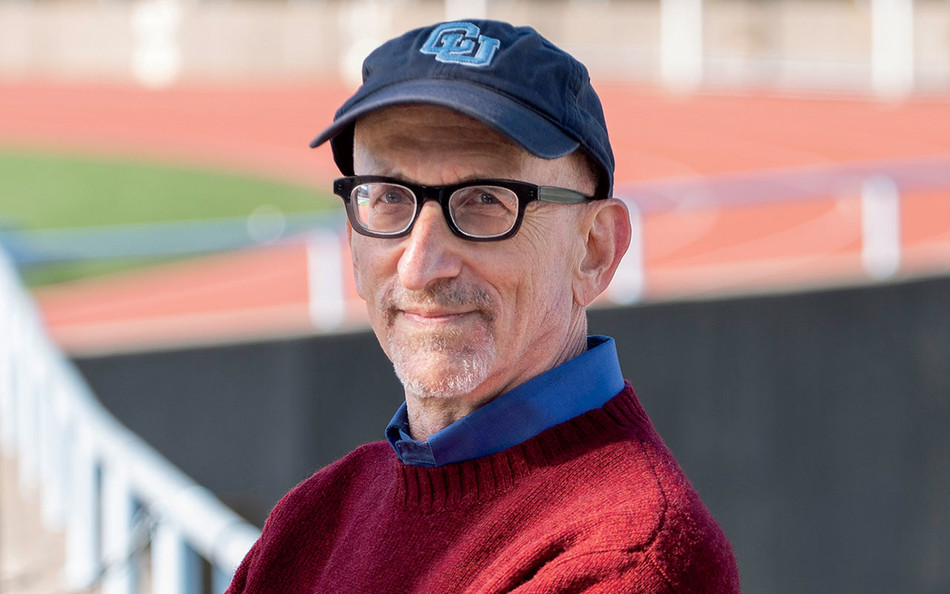For many New Yorkers, The Brian Lehrer Show, which airs weekdays from 10:00 a.m. to noon on the New York public-radio station WNYC, is as essential to the morning as fresh-brewed coffee. The program’s host, Brian Lehrer ’96PH, serves up a nourishing spread of interviews and discussions on politics, culture, health, science, and current events, delivered in a relaxed, intelligent voice so familiar and so empathic that audiences easily identify with him — and vice versa. “I see my role as being the listeners’ advocate,” Lehrer says.
At seventy-one, Lehrer is a New York institution and one of those rare celebrities recognized not by his face but by his voice. (Once, at a gas station, he said “Fill ’er up,” to which the attendant replied, “Brian Lehrer!”) His show debuted in 1989, and Lehrer quickly established himself as a sensitive, versatile interviewer, a sort of erudite everyman. “I’m a generalist, so I’m not an expert in every topic,” he says. “That’s the role of the guests. But I still want to come as prepared as possible.” Each show requires hours of research, and Lehrer considers different points of view as he formulates his questions, with an eye, always, to the public interest.
“In my ideal vision of myself, I’m a community builder, and my main vehicle for that is to invite a lot of different people in,” Lehrer says. Whether talking to a City Council member or a cook, a medic or the mayor; whether discoursing on college admissions, air quality, or the minimum wage, Lehrer creates a warm and open kitchen-table environment filled with honest, direct questions and thoughtful dialogue. And if his varied interests help account for his democratic cross section of listeners, he is also pointedly inclusive. “You don’t get a diverse caller base by saying, ‘Everybody’s welcome,’” he says. “You get it by explicitly inviting individual groups for different segments.”
Those groups may be bound by race, religion, gender, geography, occupation, medical condition, political bent, or life experience. Lehrer may ask to hear from immigrants or workers affected by a strike. He may ask to hear from people who have their houseguests remove their shoes. Once, while covering a port labor dispute, he invited longshoremen to phone in — and they did. On the Friday after Thanksgiving 2001, with fires still smoldering at Ground Zero and anti-Islam feeling in the air, he invited Muslim listeners to call in and talk about the dishes they’d made for their Ramadan post-fast Thanksgiving feasts, as the holidays coincided that year. In such times of trauma, the show can be a veritable lifeline.
Lehrer was raised in Queens by parents who were very health-conscious. “They instilled that in me early on,” he says. He grew up loving baseball, studying classical flute, and listening, late at night, to local radio: the talk ’n’ roll schmooze of Alex Bennett (WPLJ), the grumpy artistry of Steve Post (WBAI), and the funny, poignant storytelling of Jean Shepherd (WOR). After majoring in music at SUNY Albany (“I minored in the radio station”), he got a master’s in journalism at Ohio State. He also developed a strong interest in conservation law and ecology. Wanting to deepen his knowledge, he enrolled in Columbia’s Mailman School of Public Health, where he focused on health and the environment.
“What I learned at Mailman has informed my approach to almost every major issue,” he says. “The school taught me policy-analysis skills, which I see as a framework for a holistic understanding of so much that we debate in politics.” With his public-health education, Lehrer was well-prepared to talk through 9/11 as well as the pandemic, to say nothing of gun violence, health inequality, pollution, and the climate.
Lehrer lives in Inwood, at the northern tip of Manhattan, and has two grown sons. He loves listening to jazz and classical music, and on most days he runs a few miles (“a great joy of mine”), often on the “wonderful” track at Columbia’s Baker Athletics Complex. He is a New Yorker to the bone, though over the course of his thirty-four years on the air, his New York has changed a lot.
“One thing I like is the development of many more bike lanes in the city, including the fabulous path that goes up the Hudson River, the length of Manhattan,” he says. “One thing I don’t like is the proliferation of chain stores, which never used to be a New York City thing. Today, a visitor could walk around and think the name of the city was Dunkin’ Donuts.”
Bike lanes versus doughnut chains — that’s a pretty good snapshot of Lehrer’s abiding concerns. As he says: “Public health touches everything.”
This article appears in the Winter 2023-24 print edition of Columbia Magazine with the title "Voice of Reason."



